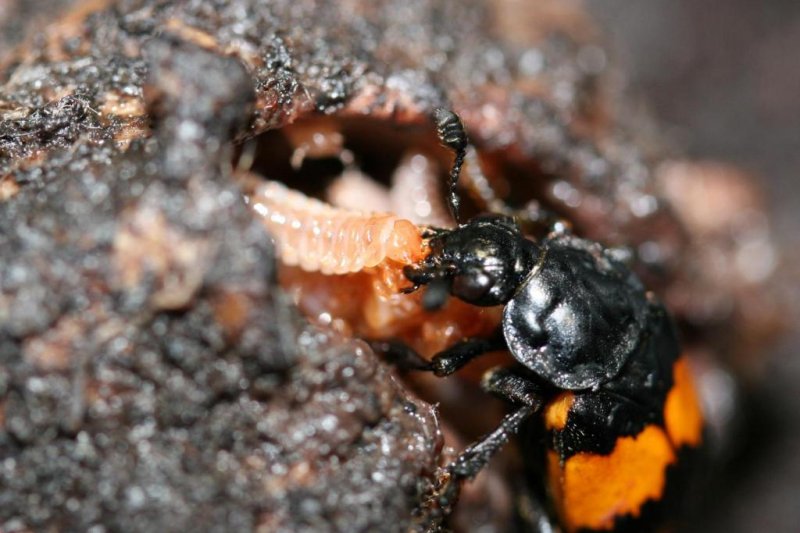Feb. 14 (UPI) -- In a new study, a team of geneticists at the University of Georgia showed how parenting transforms the brain of burying beetles.
Their experiments showed the act of parenting changes the makeup of neuropeptides produced in the beetle brain. Neuropeptides are proteins linked with mating, feeding, aggression and increased social tolerance.















